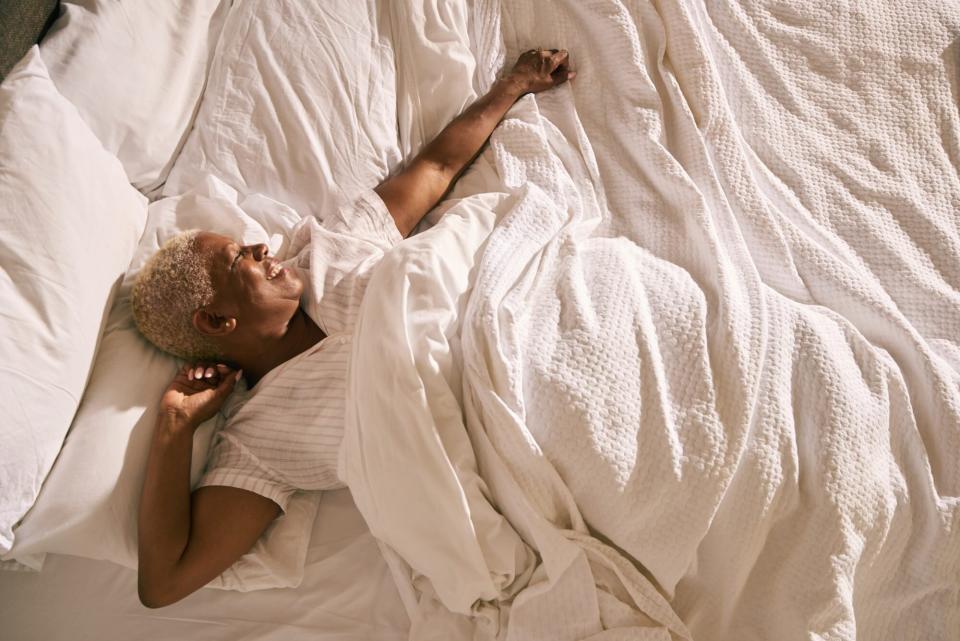Waking Up One Hour Earlier Might Cut Your Risk of Depression By Over 20 Percent
Looking for a new reason to become an early riser? Per a new study published in the journal JAMA Psychiatry by University of Colorado Boulder and the Broad Institute of MIT and Harvard researchers, setting your alarm clock for just one hour earlier can positively influence your chronotype (a person's ability to sleep at a certain time) and decrease the risk of major depression by 23 percent.

Getty / Flashpop
"We have known for some time that there is a relationship between sleep timing and mood, but a question we often hear from clinicians is: How much earlier do we need to shift people to see a benefit?" said Celine Vetter, an assistant professor of integrative physiology at CU Boulder and a senior study author. "We found that even one hour earlier sleep timing is associated with a significantly lower risk of depression."
The researchers used data from the DNA testing company 23 and Me and the biomedical database UK Biobank to study the sleep habits of 840,000 people. Iyas Daghlas, MD, the lead study author, conducted "Mendelian randomization," a method that analyzes cause and effect in genetics. "Our genetics are set at birth so some of the biases that affect other kinds of epidemiological research tend not to affect genetic studies," said Daghlas.
After gathering statistics on the study subjects, including data from 85,000 individuals who wore sleep trackers for seven days and 250,000 who completed sleep questionnaires, the scientists found that those who went to sleep an hour earlier and got up sooner than usual cut their risk of depression by 23 percent. Adjusting waking time two hours earlier reduced depression risks by 40 percent. "We live in a society that is designed for morning people, and evening people often feel as if they are in a constant state of misalignment with that societal clock," said Daghlas, also noting that more research can help identify if going to sleep early can conclusively cut depression risk. "Keep your days bright and your nights dark," Vetter adds. "Have your morning coffee on the porch. Walk or ride your bike to work if you can, and dim those electronics in the evening."

